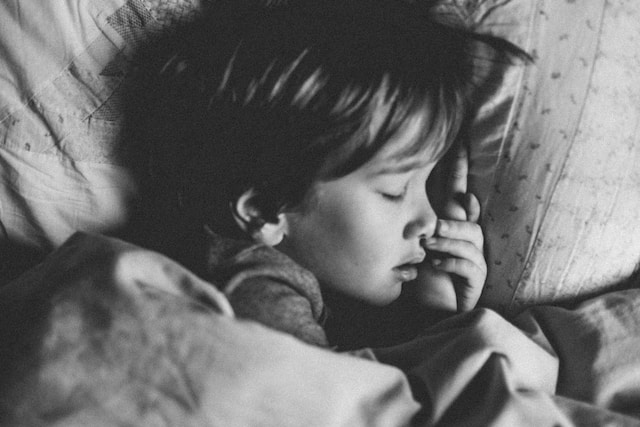In a world filled with constant stressors and overwhelming demands, anxiety has become a prevalent issue affecting millions of individuals. While numerous strategies exist to manage anxiety, the impact of sleep and the positions in which we rest our bodies often go unnoticed. In this article, we delve into the realm of sleep positions, exploring how specific postures can contribute to reducing anxiety and promoting relaxation. By understanding the relationship between sleep and mental well-being, you can unlock the transformative power of a good night’s rest.
The Intricate Dance of Sleep and Anxiety
The intricate dance between sleep and anxiety is deeply rooted in the connection between our bodies and minds. Scientific research has shown that sleep quality plays a vital role in maintaining emotional equilibrium and managing anxiety levels. Understanding how different sleeping positions can affect the body can provide valuable insights into promoting better sleep and alleviating anxiety.
- Back Sleeping: Embracing Serenity
Sleeping on your back, also known as the supine position, is often recommended for anxiety sufferers. This posture allows for a neutral spinal alignment, reducing the risk of muscle tension and pain. Back sleeping also facilitates unobstructed breathing, promoting relaxation and easing anxiety symptoms. However, it’s important to ensure proper head and neck support to prevent discomfort.
- Side Sleeping: The Path to Peacefulness
Side sleeping, particularly on the left side, has been found to offer numerous benefits for anxiety reduction. This position promotes optimal blood circulation, reducing the likelihood of heartburn and acid reflux, which can trigger anxiety symptoms. Side sleeping also aligns the spine, reducing pressure on the lower back and hips. Placing a pillow between the knees further enhances comfort and relaxation.
- Fetal Position: Seeking Security
The fetal position, where one sleeps on their side with their knees curled toward the chest, provides a sense of security and comfort. This position mimics the position we assume in the womb and can evoke a feeling of safety and tranquility. However, it’s crucial to ensure that the body remains loose and not too tightly curled to avoid potential strain on the back and joints.
- Elevated Upper Body: A Breath of Relief
For individuals prone to anxiety-induced breathing difficulties, elevating the upper body can make a significant difference. Using additional pillows or an adjustable bed can help achieve this position. By propping yourself up, you can minimize the risk of acid reflux, improve airflow, and promote easier breathing, all of which contribute to reduced anxiety levels.
- Experiment and Personalize
Finding the ideal sleeping position for anxiety may require some experimentation. Everyone is unique, and what works for one person may not work for another. It’s important to listen to your body and pay attention to how different positions make you feel. Consider trying out a combination of positions or utilizing supportive pillows to create a customized sleep environment tailored to your specific needs.
Incorporating Good Sleep Practices
While finding the right sleeping position is crucial, it’s equally important to adopt good sleep practices for overall well-being. Here are some additional tips to enhance your sleep quality:
- Establish a consistent sleep schedule, ensuring you go to bed and wake up at the same time each day.
- Create a calming sleep environment by minimizing noise, light, and distractions.
- Develop a pre-bedtime routine that includes relaxing activities like reading, taking a warm bath, or practicing mindfulness.
- Limit the consumption of caffeine, especially in the hours leading up to bedtime.
- Avoid excessive screen time before bed, as the blue light emitted by electronic devices can disrupt sleep patterns.
By implementing these practices alongside an appropriate sleeping position, you can create an environment conducive to restful sleep and anxiety reduction.
In conclusion, sleep positions play a vital role in managing anxiety and promoting relaxation. Understanding the connection between sleep and mental well-being empowers us to harness the transformative power of a good night’s sleep. Experimenting with different sleeping positions, listening to our bodies, and incorporating healthy sleep practices can lead to improved sleep quality and reduced anxiety levels. So, embark on the journey of self-discovery, find your perfect sleeping position, and embrace the transformative benefits of restful and anxiety-free slumber.












